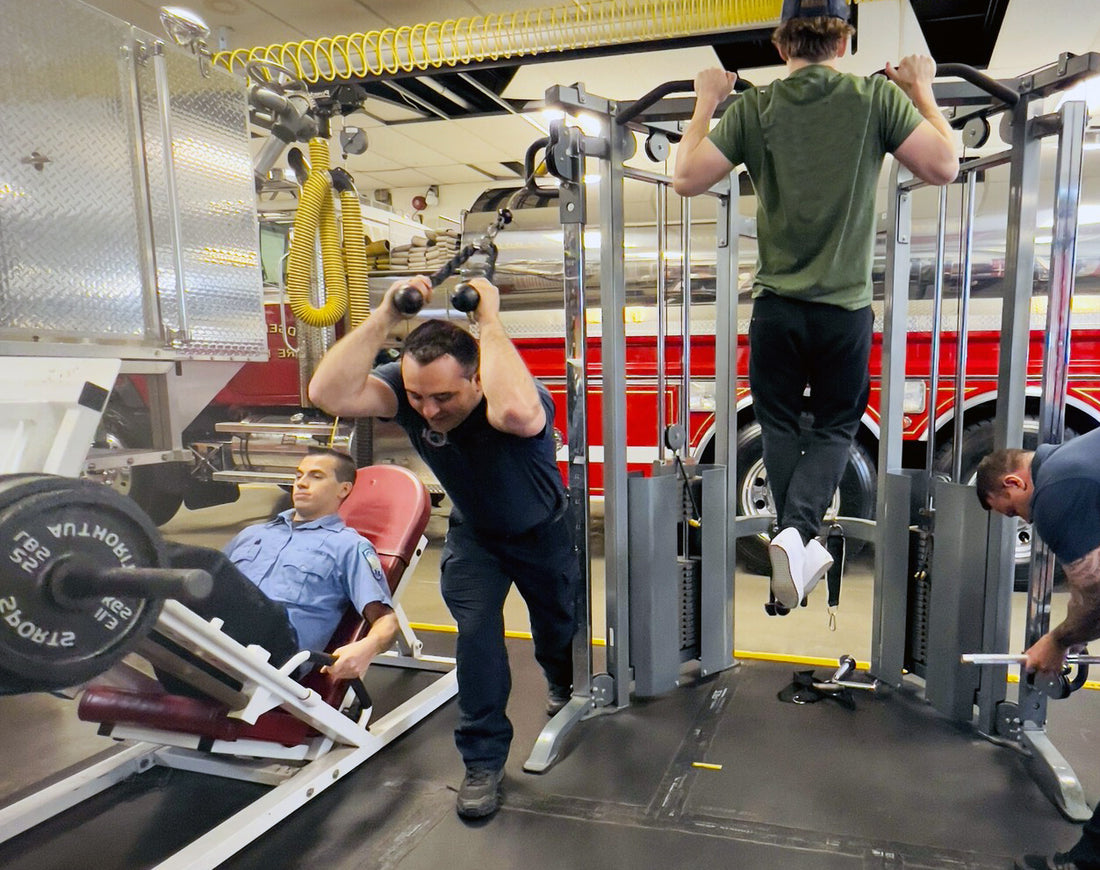
The Fitness Guide for Firefighters: Achieving Peak Performance
Share
Firefighting is one of the most physically demanding professions. Responding to emergencies requires more than just bravery; it demands peak physical fitness. The intense conditions faced during rescues, fire suppression, and hazardous material responses mean that firefighters must build both strength and stamina. Here's a guide to ensure you're ready to meet those demands head-on.
1. Strength Training for Functionality
Firefighters need to lift, carry, and move heavy objects during operations. Functional strength training mimics these real-world movements, preparing your body for the tasks you'll face on the job. Incorporate compound lifts like deadlifts, squats, and clean-and-press exercises to build full-body strength, focusing on core stability and balance.
2. Cardiovascular Endurance
Endurance is key to maintaining performance throughout prolonged emergencies. HIIT (High-Intensity Interval Training) and steady-state cardio help improve both aerobic and anaerobic capacity. Running, cycling, and stair climbing, especially in weighted vests, are excellent ways to simulate the demands of carrying heavy gear during a fire scene.
3. Flexibility and Mobility
Firefighting can require awkward movements in confined spaces. Maintaining flexibility and mobility helps prevent injury and improves overall performance. Daily stretching, yoga, or mobility drills can ensure joints and muscles remain fluid and adaptable under pressure.
4. Recovery and Injury Prevention
Rest and recovery are as vital as training. Firefighters are prone to injury due to the strenuous nature of their work, so integrating proper rest, nutrition, and active recovery techniques like foam rolling and massage can prevent long-term damage and keep you at peak fitness.
5. Mental Resilience
Physical fitness is only part of the equation. Mental toughness is crucial for firefighters who face stressful, high-pressure situations daily. Activities like meditation, breathing exercises, and mindfulness training can help build the resilience needed to handle these challenges effectively.
Final Thoughts
To be an effective firefighter, you must maintain a balance of strength, endurance, flexibility, and mental fortitude. By incorporating these essential fitness elements into your routine, you'll be prepared to protect not only the community but also yourself.
